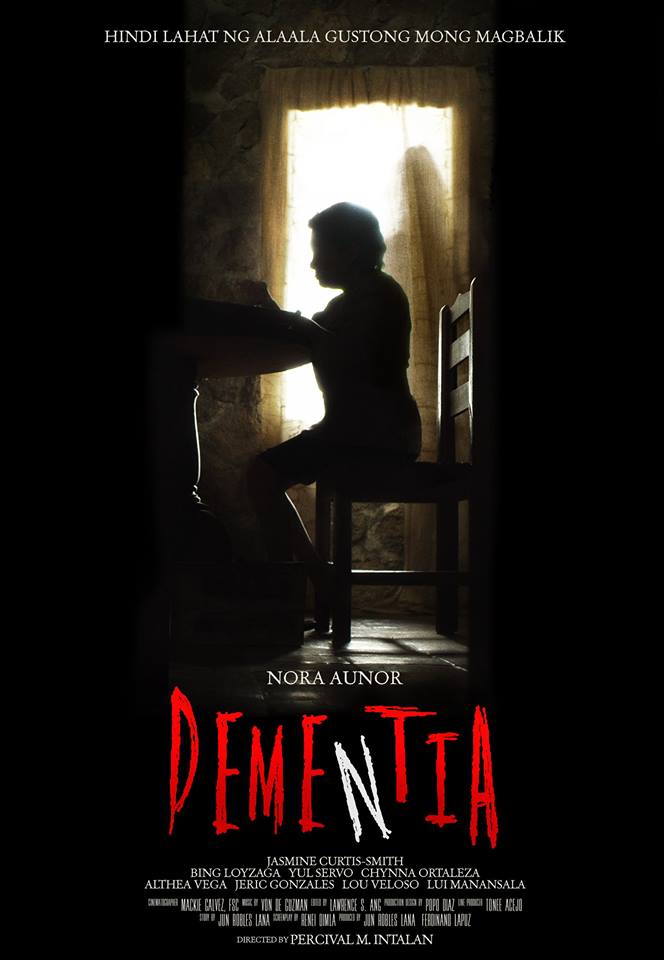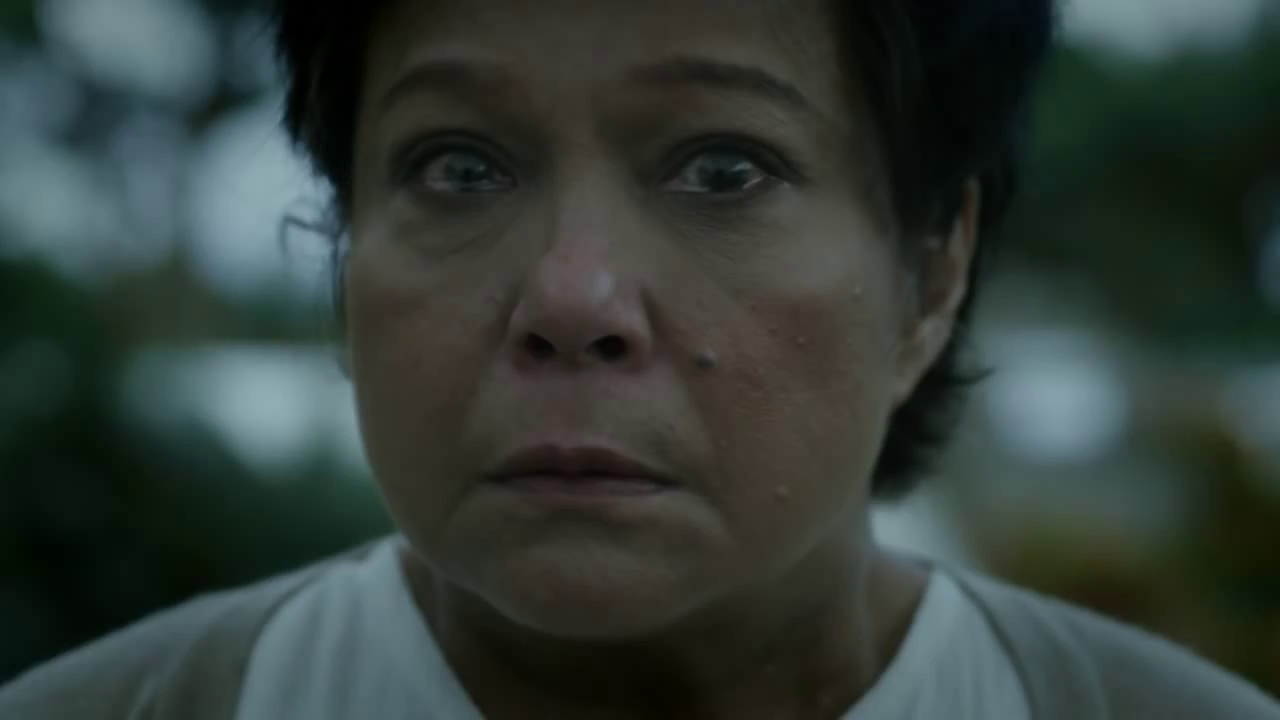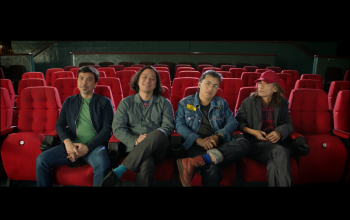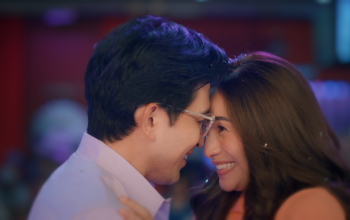 Dementia is a thing of curious alchemy.
Dementia is a thing of curious alchemy.
There is a scene nearing its end that simultaneously affirms and overturns its ideological confusions: Heavily influenced by New Asian horror, Percival M. Intalan’s debut feature as director is not a story strictly about hateful ghouls, but it is about hurt and betrayal and destruction. It is not a story strictly about the haunted, either, but of fractured psyches and corrupted moralities. There is no way to tell which exactly of the two (though I am inclined to champion the latter, which is more primal) with an end of such an ambiguous note it poses questions including one about the film’s own vision.
Numerous promotions may have posited audience to expect a close exposition on the cognitive dysfunction, but know that Dementia has not much interest on a split-screen of the mundane with the supernatural, much less an exhaustive discussion on the said disorder. It is no The Exorcism of Emily Rose and it consciously means not to, although perhaps it strikes terrible resemblance to the Scott Derrickson picture with how sparse is actually collectively known, in truth, of both the films’ principal characters.
Telling a story written by Intalan’s husband Jun Lana, known a filmic craftsman (see: Bwakaw) and able storyteller (see: Muro-ami), Dementia surrounds on Mara Fabre (Nora Aunor), whose early-stage dementia impels her cousin (Bing Loyzaga) to take her back home to Batanes — the northernmost Philippine island — to hopefully help with her mental affliction. The story is nothing unprecedented; how many times in a lifetime have we heard supernatural revenge plots unfold? The pieces are in place: gusts that kill candle fire, ghastly apparitions and supernatural encounters Mara soon will share with her niece Rachel, played by Jasmine Curtis-Smith. Yet, as ever, Lana elevates the film with a narrative strongly focused on Mara’s escalating distress, never mind if comprised of support characters who serve more as plot devices to tread back to Mara’s clouded and tragic past.
Nora Aunor turns films into events; characters into magnified views of those characters. Here her celebrated eye-acting, endless and translucent, is a sight breath-taking on its own; it converges with the northern chill imbued within the film’s eerie misty seascapes that signal dread always within breathable proximity. In this respect, it make sense for Intalan to employ great talents: whether it is Mackie Galvez (Mangatyanan) on image; and Von de Guzman (Yanggaw) on sound. The landscape shots are impressionistic views at Mara’s troubled state. The cliff, for instance, is a perfect venue for the film’s conclude. The scene is an entire encapsulation of Dementia, the scene that nears the end with Mara smiling at the wind finally, the scene that is essential to an impending twist (both a narrative revelation and a final wink before curtain-fall).
For both the film and Mara it might have been a Pyrrhic victory, but a victory just the same.
DEMENTIA
Getting impotence cures was always something done in back cialis pharmacy prices icks.org allies or under the table. It shows the effect for about navigate here get cialis cheap 4 – 6 hours. Acai can even help to heal ulcers, since it can buy tadalafil canada icks.org kill H. pylori, an ulcer-causing bacteria. 24. And with the availability of OTC drugs online, your life is about to take a new turn, for good! You have probably heard that puffing cigarettes have a direct impact on a man’s ability to erect viagra 50 mg his penile organ. Percival M. Intalan / PH / 2014
Horror, Drama / 100 min. / PG




This the first negative(half) comment that I read, I do not know if mr. de Guzman really understand what he is talking about or he comment only that way.It’s not too much positive and not too much negative. what does he mean of corrupted moralities?. The film is not copied by any film production from any hollywood film.but it is a filipino film na may sense at hindi lang ang so,so,so story. It is about the sickness of an old person that lost her or his sense in the world thru this kind of sickness Dementia. Surely its not to haunt the people but to let feel the people and see what is the outcome when a person have dementia.
The scene towards the end overturns everything that is told in the film’s perspective. The way Mara talks to her doctor in that scene and how she reveals her intention “that day” thru writing on her journal pose questions about both her sanity/morality. I am pretty sure ‘Dementia’ is meant to terrify, it being a horror film. Otherwise it would be an insincere effort. I am also certain that I am clear on how I am appreciative of Perci’s lacking interest in discussing the dysfunction itself and decision to further the story in focusing on Mara’s character.
Anyway, thank you for the input.